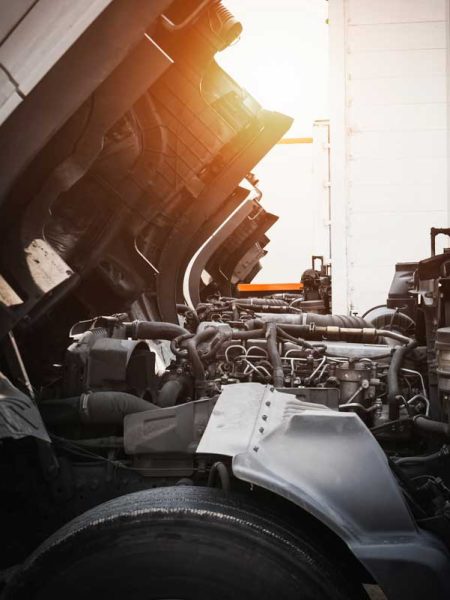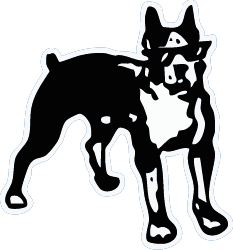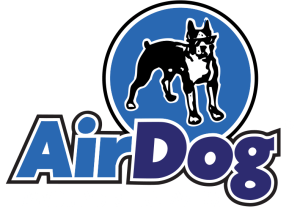

AirDog® fuel filtration systems are one of the best tools available to ensure only clean, air and moisture-free diesel makes its way into your engines. The benefits these systems offer in terms of protecting engine parts, limiting wear on emissions components, and improving fuel economy, make AirDog® the obvious choice for diesel fuel filtration.
Of course, for AirDog® to function properly you have to change the filters every so often. Fortunately, changing AirDog® filters is one of the simpler jobs in heavy-duty diesel engine maintenance. As long as you follow a few basic steps—including priming the system before use—you can enjoy all the benefits of premium fuel filtration with very little work on your part.
Let’s look closer at the specifics of how to prime an AirDog® System. This way, you can be certain you are priming correctly before operating your diesel.
It’s always important to prime the fuel system before cranking when installing AirDog® filters.
There are two main scenarios where this is necessary:
If you have just installed an AirDog® fuel system, you will want to keep in mind that priming before initial use is required for the system to operate correctly. The AirDog® system will do an excellent job of removing air from the fuel before it enters the fuel injectors, but you need to prime it first for it to operate as intended.
Failure to prime the system before starting the engine can cause air to enter the system. It can put unnecessary strain on the pumps. And it can result in a less-than-optimal blend of fuel entering the injectors when you start the engine.
The greatest risk of strain on the system and air introduction likely comes directly after an initial installation of a new fuel filtration system. However, these things can still happen when you change the fuel filters. That’s why it’s necessary to fill the water separator with clean fuel and to prime the system before starting the engine.
All diesel fuel filtration systems, even the basic ones, are designed to minimize the introduction of air into the system and strain on the pumps. The technology was less advanced than found in AirDog®, but it still required basic protections that included keeping the system sealed with functional fuel lines, and proper fittings, and engaging in a priming process before starting the engine after a filter change.
AirDog® does a much better job of removing air than these older systems did, but it still follows some of the basic principles of diesel fuel filtration. These include proper system maintenance to keep fuel lines and fittings in good condition, along with priming the system after an initial install or a filter change.
The priming process is important for several reasons. First, the filling of the water separator with clean fuel replaces the air in the filter. If the water separator is not filled with clean diesel fuel, the likelihood of air introduction goes up. Instead of being full of diesel, the separator will be full of air, which will be pushed along towards the fuel injectors once the pumps start operating.
Second, the system needs to be primed. Priming provides power to the pumps to bring fuel from the tank, through the filters, and up to the injectors. This helps in two different ways. It reduces strain on the pumps and it does a lot to keep air from entering the fuel system as it travels from the tank to the injectors.
Failing to prime the system could result in an airlock, where enough air enters the fuel lines that it creates a lack of fuel at the injectors or a sub-optimal mix of air and fuel at the injectors. If there is no fuel entering the injectors, the engine may not start. If the mix includes too much air and the engine does start, it can cause excess wear and tear on the fuel injectors, reduced performance, poor fuel economy, excess emissions, and other undesirable symptoms.
Priming the AirDog® fuel system is easy. It only requires filling the water separator with fuel and giving the system 30 seconds to warm up before starting the engine.
Just take the following steps:
Remember, there are two times when you will need to prime the AirDog® fuel system: after the initial installation and after changing the filters. The priming process is a requirement for the system to operate as intended. AirDog® is impressive in its ability to remove particulates, water, air, and vapor from the fuel system before fuel reaches the fuel injectors. But it needs to be primed as instructed for it to do its job correctly.
While the priming process may require a little extra time and effort, it is minimal. Filling the water separator with diesel and taking 30 seconds for the pumps to activate is not much work for so many benefits.
The AirDog® system can help your heavy-duty diesel engine operate at peak efficiency and prolong the life of the engine and emission components. Add the improved fuel economy and you have a long list of advantages that make AirDog® an easy choice. As long as you keep up with proper maintenance and prime the system when necessary, AirDog® should serve your needs well for many years to come.
Questions about AirDog®? Please feel free to give us a call or message us and we will be happy to answer them.


Heavy-duty diesel fuel systems from AirDog will help increase your mileage and injector life by removing water, vapor and contaminants. Made in the USA since 1990.
PUREFLOW™ TECHNOLOGIES, INC.
5508 Business 50 West
Jefferson City, MO 65109
© 2025. All rights reserved.
Site by Zimmer Communications